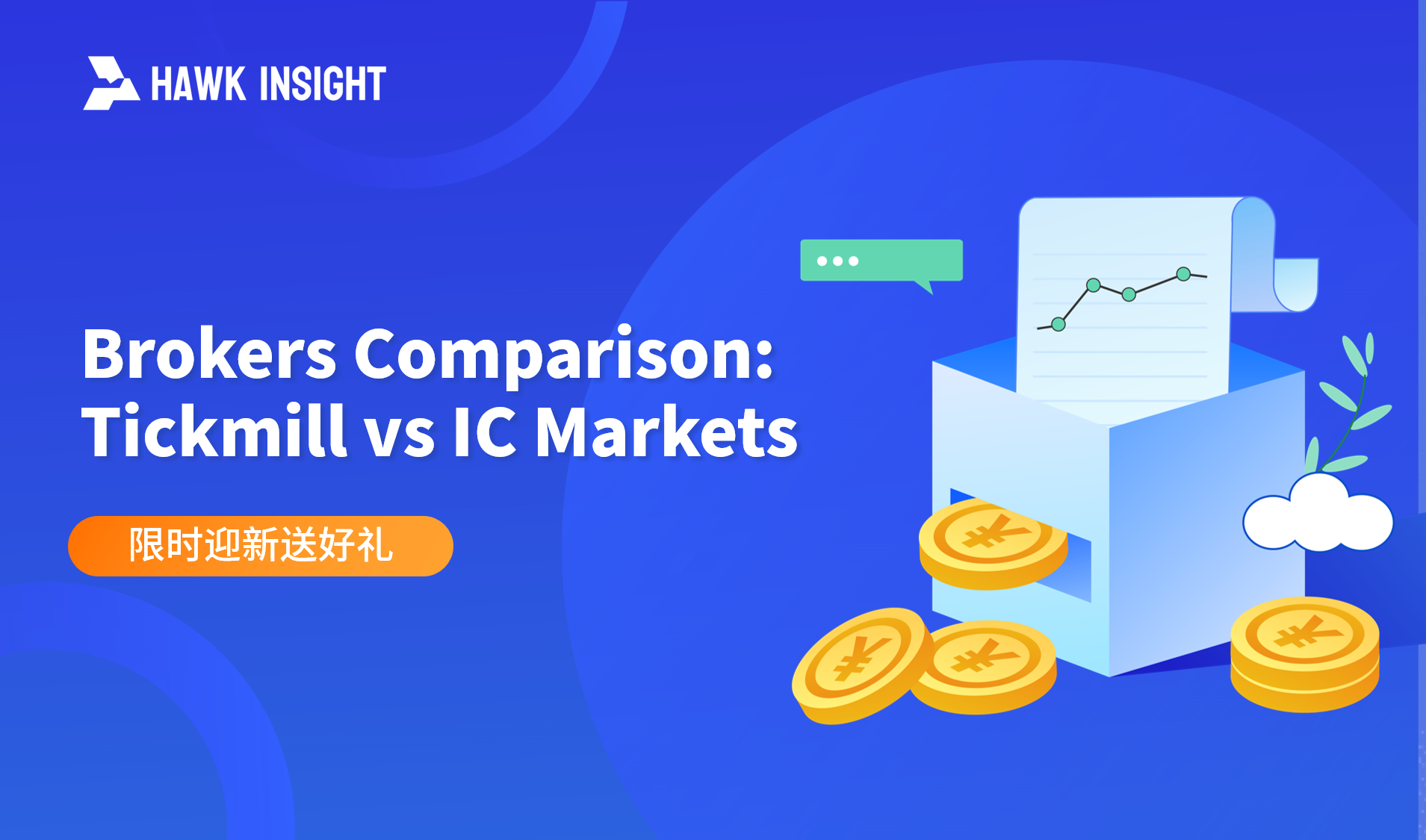Brokers Comparison: Tickmill vs IC Markets
This article will analyze in detail the main characteristics of Tickmill and IC Markets from multiple perspectives to help investors make smarter decisions when choosing a foreign exchange trading platform.

In the field of foreign exchange trading, Tickmill and IC Markets are two popular trading platforms.This article will analyze the main characteristics of the two in detail from multiple perspectives such as fees, spreads, trading platforms, market coverage, customer support, trading tools and technologies to help investors make more informed decisions when choosing a foreign exchange trading platform.
Overview
Tickmill and IC Markets are both internationally renowned foreign exchange brokers with reliable regulatory qualifications.Tickmill operates mainly in the UK, Seychelles and Cyprus and enjoys a low spread advantage;IC Markets is an Australia broker with services covering foreign exchange, indices and commodities, and is widely favored for its cost-effectiveness and rapid trade execution.
In terms of regulation, Tickmill is regulated by the UK Financial Conduct Authority (FCA), the Financial Services Authority of Seychelles (FSA) and the Securities and Exchange Commission of Cyprus (CySEC); while IC Markets is regulated by the Australia Securities and Investments Commission (ASIC).Although both are reliable and regulated platforms, regulatory differences may affect the choices of some investors.
In addition, the account types on the two platforms are also different.Tickmill offers three accounts: Classic, Pro and VIP, while IC Markets has two accounts: Standard and Raw Spread. Trading conditions and fees vary for different accounts.
Fees & Spreads
Fees and spreads are important considerations for investors when choosing a foreign exchange platform.Both Tickmill and IC Markets offer competitive spreads, but Tickmill has a slight advantage in some cases.For example, Tickmill's PRO account has a commission of $2 per lot, while IC Markets 'Raw Spread account has a commission of $3.50 per lot.IC Markets 'Standard accounts do not charge commissions, but the spread is slightly higher than Tickmill's Classic accounts.Investors need to reasonably choose the appropriate account type based on their personal trading needs.
In terms of spreads, Tickmill has slightly lower spreads on some currency pairs, such as EUR/USD spreads starting from 0.0 points, while IC Markets 'Raw Spread account starts from 0.1 points.In addition, IC Markets offers more currency pairs, especially in foreign currencies, which is suitable for investors who prefer to trade niche currencies.However, it should be noted that foreign currency pairs have large fluctuations and relatively high risks.
Trading Platform
Tickmill and IC Markets have their own characteristics in terms of support for trading platforms.IC Markets provides platforms such as MetaTrader 4, MetaTrader 5 and cTrader for investors who need advanced chart analysis functions;Tickmill supports the simple Web Trader platform and the classic MetaTrader 4.Both support expert advisers (EA) and other algorithmic trading solutions, and IC Markets also provides VPS services to make it convenient for investors to run EA 24/7.Tickmill also provides free VPS services to customers who reach a certain transaction volume.
In terms of mobile transactions, IC Markets performs better, offering apps for iOS and Android, while Tickmill currently only supports iOS, but plans to launch an Android version.
Trading Markets
There are certain differences in market coverage between Tickmill and IC Markets.Tickmill offers approximately 80 markets, while IC Markets offers up to 100.Both cover foreign exchange, indices, commodities and cryptocurrency trading, and provide ECN pricing to ensure smaller spreads and faster execution speeds.IC Markets has more choices in foreign currency pairs and is suitable for investors who prefer highly volatile currency pairs, but need to pay attention to the high risks of such currency pairs.
In addition, both platforms provide global market access, allowing investors to look for trading opportunities in Asian, European or U.S. markets based on different market strategies.Both also offer major stock indices such as the S & P 500 and FTSE 100, providing investors with more diversified options.
Customer Support
In terms of customer support, both Tickmill and IC Markets provide services such as telephone, email and online chat.Tickmill is equipped with a dedicated account manager for all customers to provide personalized services, while IC Markets has a detailed FAQ column for investors who make independent inquiries.Both support multi-language services. Tickmill is known for its fast response speed and usually responds to all inquiries within 24 hours. Although IC Markets does not set a clear response time, its customer feedback shows that replies are more timely.
Trading Tools
Tickmill and IC Markets have their own characteristics in terms of trading tools and technical support.Tickmill provides analytical tools such as Autochartist, Myfxbook and Trading Central to help investors analyze markets, identify trading opportunities and automate strategies.IC Markets supports advanced platforms such as MetaTrader 4, MetaTrader 5, cTrader and FIX API, providing investors with a wealth of analysis and risk management tools.
In terms of mobile trading, both platforms provide iOS and Android applications with real-time quotes, advanced charts and order management functions to help investors control transactions at any time.Both also provide a wide range of educational resources, Tickmill provides comprehensive trading manuals and signals, and IC Markets provides webinars, trading guides and video tutorials to help investors improve their trading skills.
To sum up, both Tickmill and IC Markets provide foreign exchange traders with a wealth of choices and support. Both have their own advantages in terms of fees, spreads, platform and market coverage.
·Original
Disclaimer: The views in this article are from the original Creator and do not represent the views or position of Hawk Insight. The content of the article is for reference, communication and learning only, and does not constitute investment advice. If it involves copyright issues, please contact us for deletion.